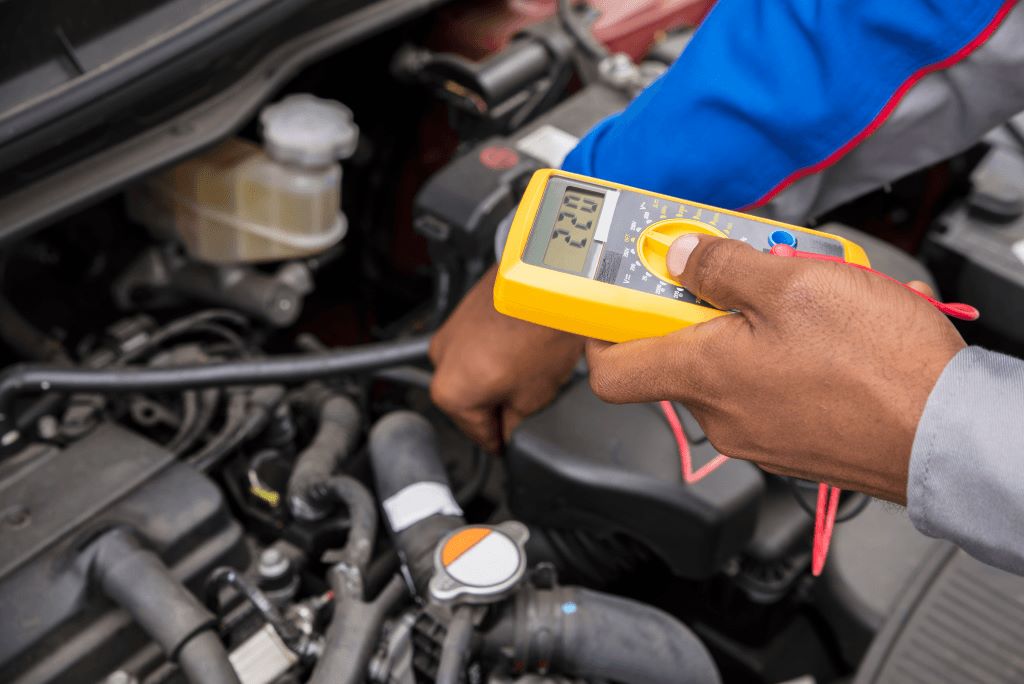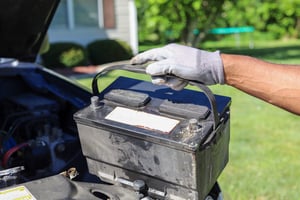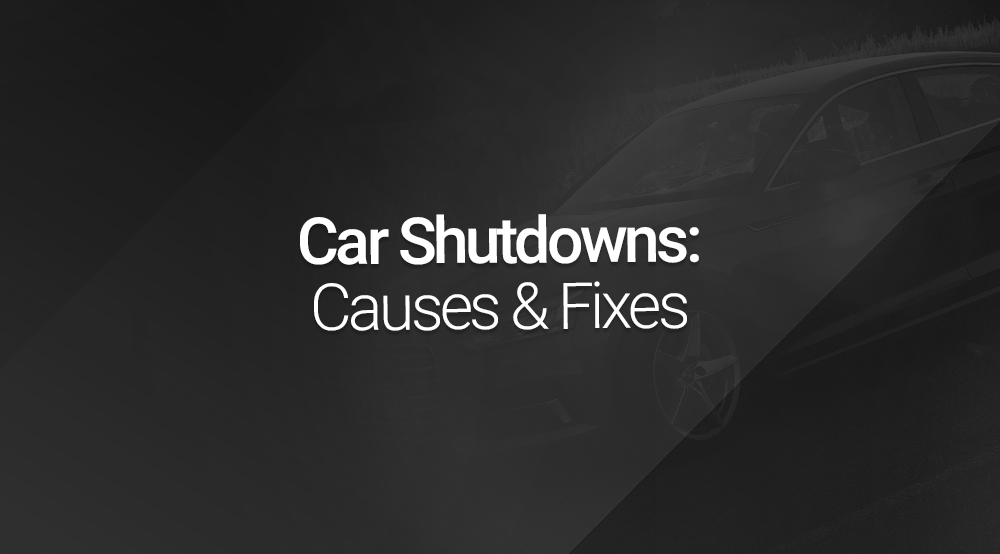
Car Shuts Off When Stopped or Slowing Down: Battery Woes
Imagine navigating through city traffic when your car abruptly shuts off at a stoplight. Imagine the inconvenience and frustration as your vehicle fails to restart. While various factors can contribute to this issue, a faulty battery is often the culprit. Let’s delve deeper into why your car battery might be causing these inconvenient engine shutdowns.
While a battery’s primary function is to start your car, it also provides electricity to various components when the engine is running. If the battery is weak or failing, it may not have enough power to maintain these electrical demands, leading to unexpected shutdowns, especially when the engine is idling or under increased electrical load.
Exploring the Battery’s Role in Ignition and Power Supply
The battery plays a crucial role in the ignition process. When you turn the key, the starter motor draws a significant amount of current from the battery to crank the engine. If the battery is weak, it may not have enough power to deliver the necessary current, resulting in a failed start or engine stalling.
Beyond starting the engine, the battery also acts as a power source for various electrical components while the engine is running. These components include lights, audio systems, climate control, and ignition systems. If the battery is weak or failing, it may not be able to provide sufficient power to these systems, potentially causing disruptions or even shutdowns.
Diagnosing Battery Issues and Finding Solutions
Various factors can contribute to battery-related engine shutdowns. One common cause is a discharged battery. If you have left your lights on or forgotten to turn off an accessory, the battery may have drained overnight. In such cases, jump-starting the car or using a battery charger can provide a temporary solution.
Battery age is another factor to consider. As a car battery ages, its ability to hold a charge decreases. Typically, car batteries have a lifespan of 3-5 years. If your battery is nearing the end of its lifespan, it may require replacement to prevent unexpected shutdowns.
Extreme temperatures can also impact battery performance. Excessive heat can shorten battery life, while cold temperatures can hinder its ability to deliver power. If you live in a region with extreme temperatures, consider using a battery designed for such conditions.
Tips and Expert Advice for Optimal Battery Performance
To ensure your car’s battery remains in optimal condition and avoid inconvenient shutdowns, follow these tips:
- Regular Maintenance: Get your battery inspected by a mechanic regularly to identify any potential issues early on.
- Proper Charging: Avoid draining the battery completely by turning off unnecessary accessories and lights when the engine is not running. Allow the car to run for extended periods periodically to recharge the battery.
- Battery Cleaning: Clean the battery terminals and connections regularly to remove corrosion and ensure proper electrical contact.
- Battery Replacement: If the battery is old or has repeatedly failed, it’s wise to replace it with a new one to prevent future issues.
By following these recommendations, you can enhance your battery’s lifespan and minimize the risk of engine shutdowns. Remember, a well-maintained battery is essential for reliable vehicle performance.
FAQs for Comprehensive Understanding
- Q: Why does my car shut off when I come to a stop?
A: A weak or failing battery may not have enough power to maintain electrical demands when the engine is idling, leading to shutdowns. - Q: How can I tell if my battery is weak?
A: Dim headlights, slow engine cranking, or frequent jump-starting attempts can indicate a weak battery. - Q: How do I prevent battery-related engine shutdowns?
A: Regular battery maintenance, proper charging practices, and prompt replacement of old batteries can minimize the risk of shutdowns.
Conclusion
Understanding why your car shuts off when stopped or slowing down can help you diagnose and resolve the issue effectively. Remember, a faulty battery is often the root cause of such shutdowns. By following the tips and expert advice discussed above, you can maintain an optimal battery condition, ensuring your car starts reliably and performs smoothly, whether you’re cruising down the highway or navigating city traffic.
If you’re interested in exploring this topic further, we encourage you to conduct thorough research, consult with automotive experts or mechanics, and engage in online forums and social media discussions where car enthusiasts share their experiences and insights.

Image: www.thesilverlining.com

Image: obdeleven.com
Why does my car lose power while driving? Mar 15, 20236 Reasons Why A Car Shuts Off While Driving. 1. Faulty Crankshaft Position Sensor. The most common reason a car dies while driving is a defective crankshaft position sensor. The crankshaft sensor is necessary for your car engine to run on most car models. You also have a camshaft position sensor on some car models, which the car uses if the